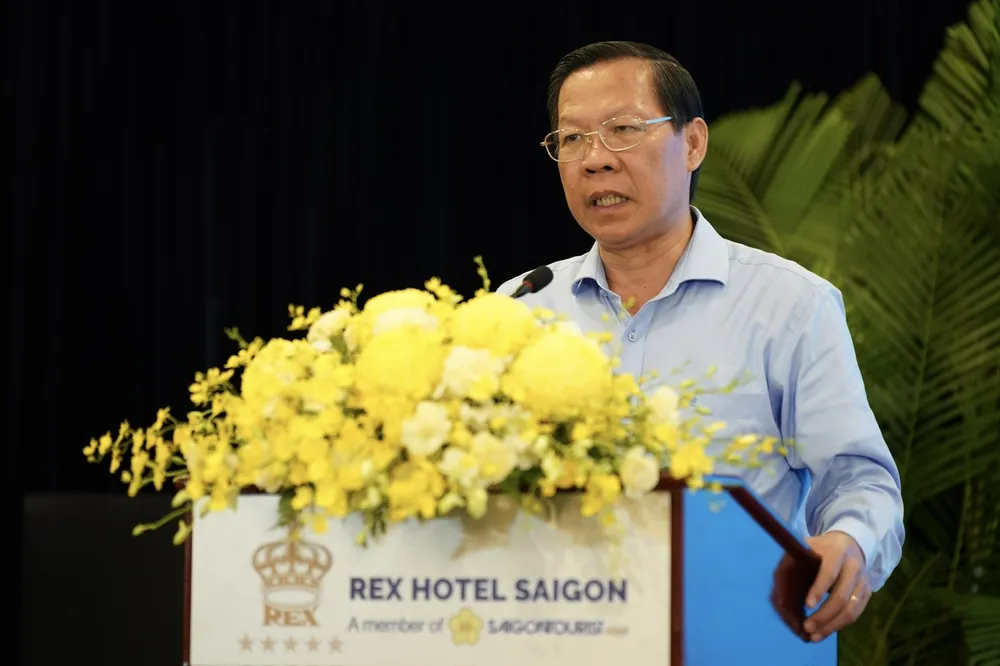
This commitment aims to forge a new path for the city's economy, breathing life into fresh perspectives, incentives, and competitive advantages, all while contributing significantly to the nation's economic growth. The city faces pressing internal issues, including climate change, the quality of life, energy security, biodiversity preservation, and development. Failing to embark on a green transformation journey would detach us from global trends. Without a well-structured strategy and long-term policies, the city's economy is unlikely to generate fresh value or competitiveness, nor will it effectively contribute to the nation's overall economic growth.
Ho Chi Minh City acknowledges its role as a responsible pioneer in the realm of green transformation and sustainable development. It proudly shoulders the responsibility of implementing national commitments in international cooperation. However, we must candidly admit that the city's evaluation of the country's general direction and legal framework regarding green transformation and sustainable development has been somewhat lacking in recent times.
To address this, Ho Chi Minh City has diligently undertaken research to establish a strategic framework for green transformation and sustainable development. This comprehensive framework will be officially unveiled during the upcoming 2023 Ho Chi Minh City Economic Forum, scheduled for this September. The strategic framework comprises three essential pillars: resources, infrastructure, and behavioral change.
Concerning resources, the city recognizes that securing green finance necessitates a reservoir of high-quality human resources, with a particular emphasis on establishing both domestic connections and international cooperation. Ongoing research is dedicated to enhancing the legal framework for green finance. Moreover, the city has identified businesses as a pivotal force in driving the success of green transformation.
The critical question is how to facilitate businesses' access to green finance to transform their production processes, gain entry into green markets, and foster sustainable development. In the foreseeable future, the city will roll out policies aimed at supporting businesses in their digital transformation alongside their green transformation initiatives.
Turning our attention to infrastructure, the city's foremost focus is on energy conversion. Presently, only slightly more than 14% of the energy sources supplying the city can be classified as clean energy. By 2030, this figure is projected to increase to a maximum of around 30%. Ho Chi Minh City, as a socio-economic hub with high energy consumption, must chart a course toward ensuring a clean energy supply, necessitating meticulous planning and substantial capital investments.
The city is actively exploring effective methods of achieving this goal, alongside researching the economical, efficient, recycling, and circular utilization of resources. The third pillar, behavior, encapsulates both consumption and production behaviors, and efforts are underway to promote awareness and garner widespread acceptance.
Additionally, the city is keenly interested in promoting green tourism and has designated the Can Gio district as a green ecosystem. Ho Chi Minh City has set ambitious objectives for Can Gio, including the exclusive use of clean and environmentally friendly electric fuel for vehicles in the area by 2030. Furthermore, electricity and water consumption in Can Gio, as well as waste treatment practices, must ensure zero or minimal emissions. The population will be reorganized in accordance with the green village model. The city envisions Can Gio as a trailblazing locality that will lead the way, contributing significantly to the collective goal of achieving net-zero emissions by 2050.
Consequently, Ho Chi Minh City looks forward to receiving valuable input from scientists, experts, financial institutions, and policy advisory agencies during the upcoming conference. This input will enable the city to continually refine its legal framework, thus fostering engagement from both the public sector and the business community, with society at large. The media, too, plays a pivotal role in this journey, leading the charge in advocating, offering suggestions, and championing the city's sustainable green development process.
(This excerpt is from a speech delivered at the "Green Financial Market and Carbon Credit" Workshop organized by Saigon Giai Phong Newspaper.)




















